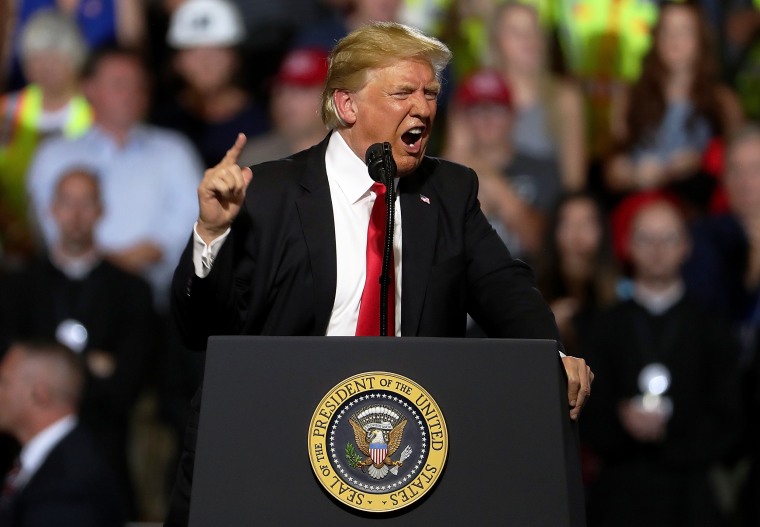When do a series of coincidences become a pattern?
President Donald Trump's re-election campaign sparked major criticism this month after it scheduled a rally on June 19 in Tulsa, Oklahoma. The place and the date resulted in massive backlash, given their connection to Black culture and history.
During a period of passionate civil unrest and racial tension sparked by the death of George Floyd in police custody, the timing of these two events felt like willful ignorance at best.
For starters, Tulsa is home to the Tulsa Race Massacre, in which white armed mobs burned over a thousand Black homes and businesses and killed several hundred in the Greenwood District (known as "Black Wall Street") of Tulsa. Juneteenth is a holiday celebrated on June 19 — the date in 1865 when Union Gen. Gordon Granger announced to enslaved African Americans in Texas that the Civil War had ended and they were free. Notably, this was over two years after President Abraham Lincoln made the same announcement in his Emancipation Proclamation.
During a period of passionate civil unrest and racial tension sparked by the death of George Floyd in police custody, the timing of these two events felt like willful ignorance at best — and at worst, yet another racist dog whistle.
Responding to this pressure, the president moved the rally to June 20, tweeting that African American "friends and supporters have reached out to suggest that we consider changing the date out of respect for this Holiday, and in observance of this important occasion and all that it represents."
But how did this mistake, if it was a mistake, get made in the first place?
Indeed, Trump's presidency has been marred by a series of similar instances, several of them recent. Trump announced rollbacks of LGBTQ health care rights on the fourth anniversary of the Pulse massacre, when a gunman killed 49 people at a gay nightclub in Orlando, Florida. He is also going to accept the Republican Party's nomination on the 60th anniversary of "Ax Handle Saturday" in Jacksonville, Florida — when civil rights activists and protesters were attacked by white mobs wielding ax handles and baseball bats. Leaders and activists in these communities see the picking of these dates and times as symbolic gestures toward his base.
On Aug. 3, 1980, Republican presidential candidate Ronald Reagan gave a speech at the county fair in Neshoba County, Mississippi. Reagan covered many topics (unemployment, the perils of bureaucracy, contrasts between him and Jimmy Carter, the Olympics, states' rights etc.), but the details of what he said were, to some extent, overpowered by the symbolism of the speech's date and time. It was delivered near where the bodies of three Congress of Racial Equality workers were found in 1964. Reagan never said he chose the location on purpose, but the Republican Party certainly was well aware of the power of coded language. Lee Atwater, a Republican campaign consultant and adviser to Reagan and George H.W. Bush, explained how talk of states' rights was used to encode racist appeals in the "Southern strategy."
To be clear, neither party has a historical monopoly on racial appeals. Though it is now one of the most diverse political parties in the world, the Democratic Party used to be home to some of the most open and staunch segregationists. The GOP, which is almost exclusively the home of white conservatives, once could have been considered the more "liberal" of the two. But in the complex context of racial progress and the two parties' having realigned along racial and ethnic, religious, ideological and geographic divides, brazen racism has become more taboo at the highest levels of government. Yet dog whistles exist, because racial politics still exist. They're not gone, just repackaged.
Want more articles like this? Follow THINK on Instagram to get updates on the week's most important cultural analysis
The power of dog whistles comes from their ingrained plausible deniability. If you are the intended audience, you get the message loud and clear while simultaneously being able to argue that no message was shared. You can throw a rock and then hide your hand. Conservatives often dismiss such concerns, saying Democrats, the "liberal media" and the intelligentsia are "playing the race card." But for many African Americans, whether you teach at Harvard or work at Walmart, understanding the ways racism can be deliberately camouflaged is an important skill.
Whether it was an intentional act of symbolism or a simple mistake, such a gaffe is unlikely to help Trump's already dismal favorability in most Black communities. According to a recent NPR/PBS NewsHour/Marist poll, two-thirds of Americans think the president has increased racial tensions in the U.S, with 88 percent of African Americans saying he has.
Indeed, for every time Trump touts his support in the Black community, there is a long list of examples to the contrary, from his comments on birtherism to his both-siding of Charlottesville, Virginia, to past tweets implying that the Black support for President Barack Obama was "racist."
The president may say he is "the law and order candidate," but with America looking for unity in the midst of a global pandemic and a surge of racial tension, Trump's shortcomings seem particularly acute. He is a leader who appears massively out of his depth when put in the position of healer and unifier. Which means that even if this was an honest misstep, for Black voters, the benefit of the doubt is long gone.
Related:

